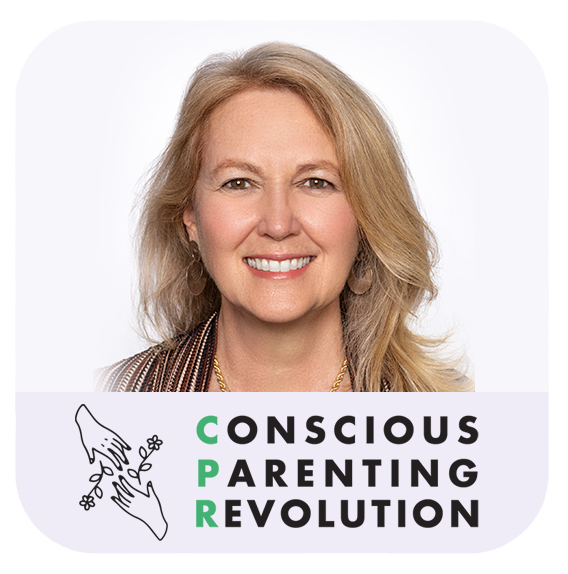How can I motivate my child?
“My child just won’t do (______) when I ask them to, and it is driving me crazy!”
Motivation, at least true motivation, is a purely internal drive. It is personal and unique to an individual. What motivates me, what really makes me tick, might leave you with an air of indifference; and that’s OK!

By Katherine Sellery
Founder of Conscious Parenting Revolution
With parents, however, the issue arises when they would like their child to do something that doesn’t really drive them. Cleaning up their rooms, putting down the video games, or going to school can quickly turn into a battle of resentment with your teens, or a meltdown with your younger-ones. So how do we side-step the drama, and still get kids anywhere on time? The answer is fostering an internal locus of causality within your child and cultivating healthy habits.
As caregivers, we all want to see the change. However, it is vital that that change happens for the reasons that we want or we will pay for the forcing.
The Myth of Rewards and Punishment
Parents who “motivate” their children through rewards and punishments are cultivating their children to have an external locus of causality. If children like the hoped for reward they may engage toward accomplishing the thing until they determine they are unlikely to get it and then they will abandon all efforts on the basis that they won’t get the reward.
People with an internal locus of causality feel a sense of genuine achievement when they succeed. If kids develop the habit of cleaning their room, the simple act of cleaning it will inspire a sense of confidence and accomplishment. The good news is that we can help our child develop an internal locus of causality by abandoning rewards and punishments.

KATHERINE SELLERY
Founder of Conscious Parenting Revolution
Katherine Sellery, CEO and Founder of Conscious Parenting Revolution, helps individuals minimize misunderstandings and melt-downs in order to communicate with more collaboration, cooperation, and consideration.
A creator of the Guidance Approach to Parenting, a program that applies conflict resolution skills to communicating more effectively with children, Katherine has positively influenced relationships for generations and brought about healing and reconciliation in families that were suffering from disconnection. For over 20 years, she has taught and coached thousands of parents, educators, social workers, and medical professionals in half a dozen countries through her popular workshops, coaching programs, TEDx talks, 250 page comprehensive training manual, and Ebook.
Katherine is a 3x TEDx Speaker, frequent guest on many news channels, and the Amazon bestselling author of “7 Strategies to Keep Your Relationship With Your Kids from Hitting the Boiling Point.”.
To learn more about Conscious Parenting Revolution, visit:
The Price of Rewards:
When we reward kids for behaviors we want, or punish them for their inaction, we are conditioning them to believe that we will buy behaviors. If they then clean the room and we don’t deem it clean enough and without the hoped for reward, they become resentful. If they do it to our standard and we pay them off, they learn that they are doing it for something other than the joy of a clean room and if you remove the external reward they are unlikely to continue to do the behavior you want. Parents have to keep increasing the payments for behaviors that they never needed to pay for to begin with!
The Results of Punishment:
Furthermore, putting a child in a “time-out”, or restricting their privileges, are both great examples of punishments. If you were given these punishments as a child, try to think back to how they made you feel. Did being put in time-out really give you time to think about what you did wrong? Did a restriction of privileges, like “no dessert for a week”, help you understand your mistakes, or give you the skills to do better next time? For the vast majority of people, the answer is a resounding no! In actuality, these punishments create space for resentment between parent and child. They activate Dr. Thomas Gordon’s famous 3 R’s, retaliation, rebellion, and resistance.


Punishment Creates Resentment
The 3 R’s account for 75% of behavioral disruptions in kids, and are activated when caregivers use a “power-over” or authoritarian/disciplinarian approach to parenting. When we put a child in a time-out, or take away one of their favorite things as punishment, we are using a “power-over” approach. We are showing them that we, as the parents, have control, and they, as the child, have none.
Children who feel they lack autonomy will act out as a way of regaining control, leading to more punishment, and so on and so forth. It is time we start asking ourselves, if punishments are so effective, why do we have to keep using them?
The truth is: rewards/ punishments simply don’t work. When we abandon the use of rewards and punishments with our children, we help disassemble their external locus of causality and dismantle the resentment flows between parent and child
Motivation that Works
When your child does something “right,” instead of rewarding your child, try acknowledging their success and expressing appreciation for the action. If your mornings are dominated by scrambling to get your child ready and out the door on time, and you find they have done it themselves one morning, let them know how much you appreciate it. Let them know, “When you got yourself ready this morning, it gave me a chance to focus on what I needed to get done, and I really appreciated that! Thank you!”
People love to be helpful and appreciated, and expressing gratitude helps reinforce that behavior!


The Difference Between Acknowledgement and Praise
However, it is important to avoid the pitfalls of praise. Praise and acknowledgement might seem similar on the surface, but in actuality, they are very different!
Praise imparts your opinion, or how you feel about an action, and is akin to a reward. “You did a great job!” might sound like a sweet thing to say when you are proud of your child, but in reality it is an evaluative statement. Whereas with acknowledgments, such as “I can see you are so happy!”, you are reflecting back what you see in the child without imparting evaluations. In the future, upon completion of a task, your child will be wanting/ expecting that same type of approval! The more we reinforce that relationship, the more we link the way they feel about their accomplishments with our own opinion, and eventually that link will become inextricable leading to low self-esteem.
The goal is to develop within the child the ability to evaluate themselves, and to realize for themselves when they did something well, or could have done better. This is where motivation comes in, as they have an internal drive to do better!
Instead of punishment, try consideration
Moreover, when they make a mistake, instead of punishing them, try using consideration. Listen to your child as they explain what happened, from their perspective. Try to keep in mind that your child is still growing and developing, especially their brains! They might not have the capacity to express themselves properly, or self-regulate their emotions. Perhaps that is where their outburst came from. In addition, while listening, truly listen. Focus on empathizing with their feelings and reflecting back to them so they feel seen, heard and understood from their perspective.
Finally, without judgment, explain why it would be better to do things differently next time. For instance, if the child forgot about their homework because it was buried under clutter, gently explain that when a room is clean or tidy, it can help eliminate distractions and promote mental well-being. If you listen to their perspective and empathize with their feelings, there is a much higher likelihood that they will reciprocate, and understand your perspective!





KATHERINE SELLERY
Founder of Conscious Parenting Revolution
Katherine Sellery, CEO and Founder of Conscious Parenting Revolution, helps individuals minimize misunderstandings and melt-downs in order to communicate with more collaboration, cooperation, and consideration.
A creator of the Guidance Approach to Parenting, a program that applies conflict resolution skills to communicating more effectively with children, Katherine has positively influenced relationships for generations and brought about healing and reconciliation in families that were suffering from disconnection. For over 20 years, she has taught and coached thousands of parents, educators, social workers, and medical professionals in half a dozen countries through her popular workshops, coaching programs, TEDx talks, 250 page comprehensive training manual, and Ebook.
Katherine is a 3x TEDx Speaker, frequent guest on many news channels, and the Amazon bestselling author of “7 Strategies to Keep Your Relationship With Your Kids from Hitting the Boiling Point.”.
To learn more about Conscious Parenting Revolution, visit:
Resources like these are provided by American SPCC – a national nonprofit dedicated to building positive childhoods for all children by empowering parents and caregivers with research-backed education and support.
This work is made possible by passionate donors and community advocates. Learn how you can get involved and support the mission here.
Previous Section
